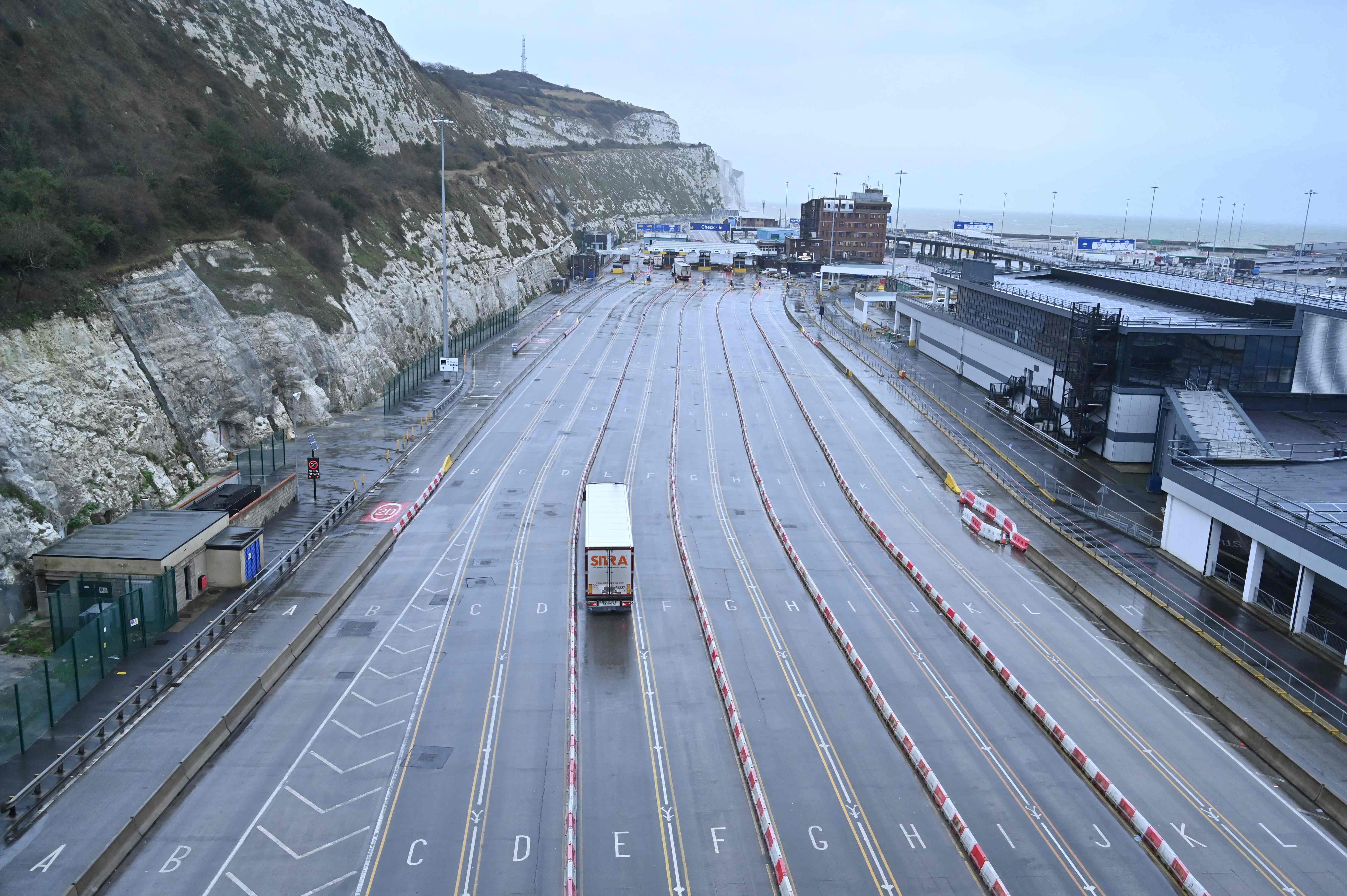What does the collapse in UK exports to the EU really tell us about Brexit?
The government is arguing that temporary factors are responsible for the huge drop in EU trade in January. But is that justified? Ben Chu investigates


The headline figures seem to say it all. In January – the first month after the end of the post-Brexit transition – UK exports to the rest of Europe collapsed by 40 per cent, according to the latest official trade figures from the Office for National Statistics.
By contrast exports to non-EU countries rose slightly in the month.
This seems to be clear evidence that Brexit is having the negative impact on UK exporters to the EU that businesses and economists warned about so loudly.
The UK avoided tariffs on EU trade thanks to the Christmas Eve free trade deal, but a tsunami of red tape and border frictions still engulfed UK exporters on 31 December as we left the single market and customs union.
And these figures would appear to be the fruits. The dispute between the Cabinet Office and hauliers over what was happening to trade in January, with both citing their own freight traffic figures, seems to have been settled. And it looks like the government has been proven wrong.
But is this the full picture? Are the trade-destroying Brexit chickens coming home to roost already?
In truth it’s probably still a little early to make that claim.
Many UK and EU businesses appear to have stockpiled goods from each other in November and December in anticipation of serious disruption, unsurprisingly given a no-deal Brexit was on the cards until close to Christmas.
Companies did the same before earlier expected Brexit deadline dates in March and October 2019 (before last-minute extensions with Brussels were agreed by Downing Street).
Exports and imports fell sharply in both April and November 2019 as firms wound down their stockpiles without, temporarily, needing to import in the same volumes to meet their needs in that month.
It’s very likely, as the government is pointing out, we’re seeing something similar in January’s figures.
The ONS also pointed on Friday to its more recent survey data suggesting the problems experienced by traders fell in February.
And there are some technical reasons, related to a change in the way data was collected by HMRC from January, why the figures this month could be artificially depressed.
Put that together and one can certainly retain some hope, as the government does, that the January collapse will prove temporary and that there will be a decent bounce back in the following months of data.
Trade experts think there probably will be some recovery. But there are also reasons to be cautious about assuming this.
The drop in trade is far bigger than following previous Brexit deadlines suggesting stockpiling cannot realistically explain the entire slump.
Looking at exporting sectors also casts some doubt. Food and live animal exports to the EU are down 60 per cent in January.
It’s unlikely continental firms have been stockpiling UK animals.
What this plainly shows, then, is the impact of the new EU customs checks and the much-publicised havoc they have caused for the UK shellfish sector.
It’s also worth noting that though the proportion of firms in the ONS survey reporting “export challenges” fell in February, at 56 per cent it remains well above the 26 per cent proportion reporting such issues in December.
The suggestion in a tweet by the Brexit minister, Lord Frost, that Covid lockdowns in January might have suppressed demand for imports from the UK looks like a stretch given patterns of trade between EU countries themselves show no similar effect.
Germany’s exports to France and Italy in January, for instance, have fallen by far less than the UK’s.
“Although other factors are at play, Brexit is likely to be the primary explanation,” concludes Thomas Sampson of the London School of Economics.
“Even taking account the December start to lockdown and stockpiling increase in the months leading up to January and Brexit proper, these figures are horrendous,” says Allie Renison of the Institute of Directors (IoD).
What we cannot tell from these headline ONS figures is the extent to which the trade problems facing firms are “teething problems”, as ministers claim, or are permanent.
But the results of a new survey by the IoD of its member firms, conducted in January, can give us a somewhat gloomy steer.
Of the IoD members who trade with Europe, 17 per cent said they had stopped doing so as a result of Brexit. Nine per cent said this was temporary, but 8 per cent said it was a permanent break.
One solitary and volatile month of trade figures, in itself, does not prove or disprove anything.
But these latest figures are certainly consistent with the predictions of trade economists that Brexit will, over the years, result in considerably less trade with our European neighbours than otherwise would have taken place –and that this trade destruction will act as a drag on the UK’s long-term growth prospects.
Join our commenting forum
Join thought-provoking conversations, follow other Independent readers and see their replies
Comments